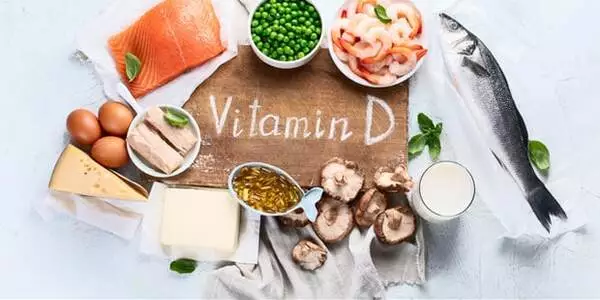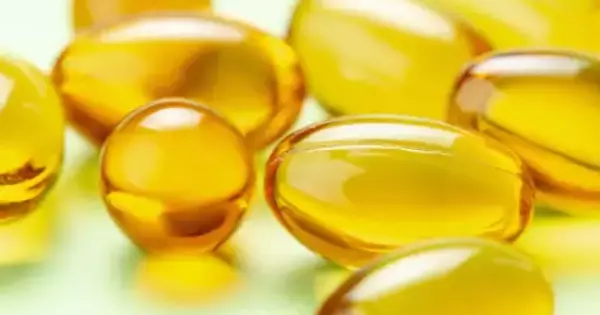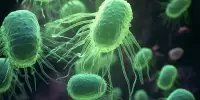Vitamin D has long been recognized as essential for bone health. Participants in the study were considered to have adequate vitamin D levels in their blood if their levels of circulating vitamin D met the National Academy of Medicine’s (NAM) suggested levels based on evidence for maintaining healthy bones.
According to the first study to show such an association, consuming more Vitamin D – primarily from dietary sources – may help protect against developing young-onset colorectal cancer or precancerous colon polyps.
The study, conducted by scientists from Dana-Farber Cancer Institute, the Harvard T.H. Chan School of Public Health, and other institutions, was recently published online in the journal Gastroenterology. It could lead to recommendations for higher vitamin D intake as an inexpensive supplement to screening tests as a colorectal cancer prevention strategy for adults under the age of 50.
Vitamin D has known activity against colorectal cancer in laboratory studies. Because vitamin D deficiency has been steadily increasing over the past few years, we wondered whether this could be contributing to the rising rates of colorectal cancer in young individuals.
Kimmie Ng
While the overall incidence of colorectal cancer has been declining, cases in younger adults have been increasing, a concerning trend that has yet to be explained. The authors of the study, including senior co-authors Kimmie Ng, MD, MPH, of Dana-Farber, and Edward Giovannucci, MD, DSc., of the T.H. Chan School, noted that vitamin D intake from food sources such as fish, mushrooms, eggs, and milk has decreased in the past several decades. There is growing evidence of an association between vitamin D and risk of colorectal cancer mortality. However, prior to the current study, no research has examined whether total vitamin D intake is associated with the risk of young-onset colorectal cancer.
“Vitamin D has known activity against colorectal cancer in laboratory studies. Because vitamin D deficiency has been steadily increasing over the past few years, we wondered whether this could be contributing to the rising rates of colorectal cancer in young individuals,” said Ng, director of the Young-Onset Colorectal Cancer Center at Dana-Farber. “We found that total vitamin D intake of 300 IU per day or more – roughly equivalent to three 8-oz. glasses of milk – was associated with an approximately 50% lower risk of developing young-onset colorectal cancer.”

The study’s findings were obtained by calculating the total vitamin D intake (from both dietary sources and supplements) of 94,205 women who took part in the Nurses’ Health Study II (NHS II). This study began in 1989 as a prospective cohort study of nurses aged 25 to 42 years. Questionnaires on demographics, diet and lifestyle factors, and medical and other health-related information are sent to the women every two years. The researchers focused on a primary endpoint: colorectal cancer diagnosed before the age of 50. On a follow-up questionnaire, they also asked if they had had a colonoscopy or sigmoidoscopy where colorectal polyps (which may be precursors to colorectal cancer) were discovered.
During the period from 1991 to 2015, the researchers documented 111 cases of young-onset colorectal cancer and 3,317 colorectal polyps. Analysis showed that higher total vitamin D intake was associated with a significantly reduced risk of early-onset colorectal cancer. The same link was found between higher vitamin D intake and risk of colon polyps detected before age 50.
The link was stronger for dietary vitamin D (mostly from dairy products) than for vitamin D supplements. According to the study’s authors, the finding could be due to chance or unknown factors that are still unknown.
Surprisingly, the researchers discovered no link between total vitamin D intake and the risk of colorectal cancer diagnosed after the age of 50. The findings were unable to explain this inconsistency, and the researchers stated that additional research in a larger sample size is required to determine whether vitamin D’s protective effect is actually stronger in young-onset colorectal cancer.
In any case, the researchers concluded that higher total vitamin D intake is linked to a lower risk of young-onset colorectal cancer and its precursors (polyps). “Our findings support the notion that vitamin D may be important for health and possibly colorectal cancer prevention in younger adults,” Ng said. “It is critical to understand the risk factors associated with young-onset colorectal cancer so that we can make informed diet and lifestyle recommendations and identify high-risk individuals for earlier screening.”
















